Related Research Articles

Sylvia Plath was an American poet, novelist, and short-story writer. She is credited with advancing the genre of confessional poetry and is best known for two of her published collections, The Colossus and Other Poems (1960) and Ariel (1965), as well as The Bell Jar, a semi-autobiographical novel published shortly before her death in 1963. The Collected Poems were published in 1981, which included previously unpublished works. For this collection Plath was awarded a Pulitzer Prize in Poetry in 1982, making her the fourth to receive this honour posthumously.
McLean Hospital is a psychiatric hospital in Belmont, Massachusetts. It is noted for its clinical staff expertise and neuroscience research and is also known for the large number of famous people who have been treated there. McLean maintains the world's largest neuroscientific and psychiatric research program in a private hospital. It is the largest psychiatric facility of Harvard Medical School, an affiliate of Massachusetts General Hospital, and part of Mass General Brigham, which also includes Brigham and Women's Hospital.
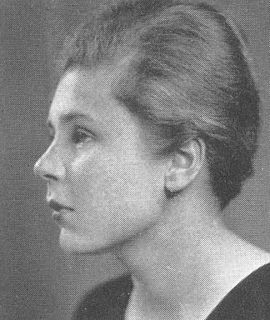
Elizabeth Bishop was an American poet and short-story writer. She was Consultant in Poetry to the Library of Congress from 1949 to 1950, the Pulitzer Prize winner for Poetry in 1956, the National Book Award winner in 1970, and the recipient of the Neustadt International Prize for Literature in 1976. Dwight Garner argued that she was perhaps "the most purely gifted poet of the 20th century".
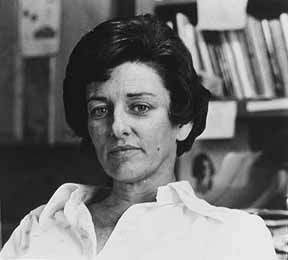
Anne Sexton was an American poet known for her highly personal, confessional verse. She won the Pulitzer Prize for poetry in 1967 for her book Live or Die. Her poetry details her long battle with depression, suicidal tendencies, and intimate details from her private life, including relationships with her husband and children, whom it was later alleged she physically and sexually assaulted.

Charles Lamb was an English essayist, poet, and antiquarian, best known for his Essays of Elia and for the children's book Tales from Shakespeare, co-authored with his sister, Mary Lamb (1764–1847).

James Russell Lowell was an American Romantic poet, critic, editor, and diplomat. He is associated with the fireside poets, a group of New England writers who were among the first American poets that rivaled the popularity of British poets. These writers usually used conventional forms and meters in their poetry, making them suitable for families entertaining at their fireside.
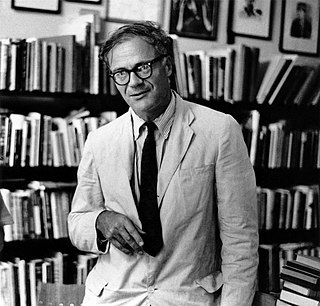
Robert Traill Spence Lowell IV was an American poet. He was born into a Boston Brahmin family that could trace its origins back to the Mayflower. His family, past and present, were important subjects in his poetry. Growing up in Boston also informed his poems, which were frequently set in Boston and the New England region. The literary scholar Paula Hayes believes that Lowell mythologized New England, particularly in his early work.
Confessional poetry or "Confessionalism" is a style of poetry that emerged in the United States during the late 1950s and early 1960s. It is sometimes classified as a form of Postmodernism. It has been described as poetry of the personal or "I", focusing on extreme moments of individual experience, the psyche, and personal trauma, including previously and occasionally still taboo matters such as mental illness, sexuality, and suicide, often set in relation to broader social themes.

The Rosenhan experiment or Thud experiment was an experiment conducted to determine the validity of psychiatric diagnosis. The participants feigned hallucinations to enter psychiatric hospitals but acted normally afterwards. They were diagnosed with psychiatric disorders and were given antipsychotic medication. The study was conducted by psychologist David Rosenhan, a Stanford University professor, and published by the journal Science in 1973 under the title "On Being Sane in Insane Places". It is considered an important and influential criticism of psychiatric diagnosis, and broached the topic of wrongful involuntary commitment. Rosenhan along with 8 other people went into these 12 hospitals across 5 states along the West coast of the US. The pseudo patients who were only admitted for a short period of time went to a different hospital, hence they went to 12 hospitals but there were only 9 participants altogether.
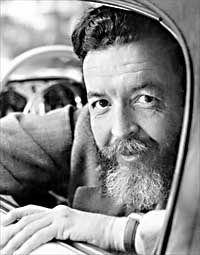
Randall Jarrelljə-REL was an American poet, literary critic, children's author, essayist, and novelist. He was the 11th Consultant in Poetry to the Library of Congress—a position that now bears the title Poet Laureate of the United States.

Robert Ian Hamilton was a British literary critic, reviewer, biographer, poet, magazine editor and publisher.
'Skunk Hour' is one of Robert Lowell's most frequently anthologized poems. It was published in his groundbreaking book of poems, Life Studies, and is regarded as a key early example of Confessional poetry.
The psychiatric survivors movement is a diverse association of individuals who either currently access mental health services, or who are survivors of interventions by psychiatry.

Jones Very was an American poet, essayist, clergyman, and mystic associated with the American Transcendentalism movement. He was known as a scholar of William Shakespeare and many of his poems were Shakespearean sonnets. He was well-known and respected amongst the Transcendentalists, though he had a mental breakdown early in his career.
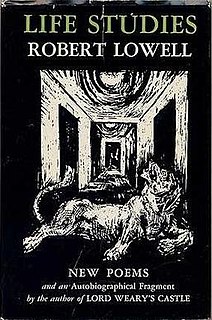
Life Studies is the fourth book of poems by Robert Lowell. Most critics consider it one of Lowell's most important books, and the Academy of American Poets named it one of their Groundbreaking Books. Helen Vendler called Life Studies Lowell's "most original book." It won the National Book Award for Poetry in 1960.
'Home After Three Months Away' is one of several "confessional" poems by Robert Lowell which appeared in his book Life Studies.
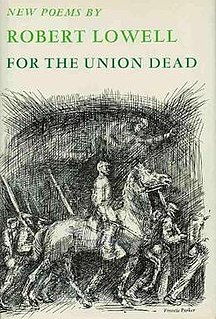
For the Union Dead is a book of poems by Robert Lowell that was published by Farrar, Straus & Giroux in 1964. It was Lowell's sixth book.

Anatomy of an Epidemic: Magic Bullets, Psychiatric Drugs, and the Astonishing Rise of Mental Illness in America is a book by Robert Whitaker published in 2010 by Crown. Whitaker asks why the number of Americans who receive government disability for mental illness approximately doubled since 1987.
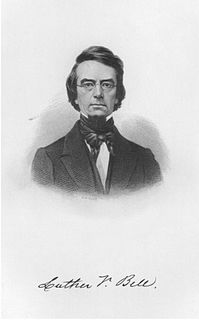
Luther Vose Bell, M.D. was one of the thirteen mental hospital superintendents who met in Philadelphia in 1844 to organize the Association of Medical Superintendents of American Institutions for the Insane (AMSAII), now the American Psychiatric Association, and the first medical specialty society in the United States. He was also Superintendent of the McLean Asylum near Boston, from 1837 to 1855.
Rufus Wyman (1778–1842) was an American physician. He was the first physician and superintendent of the Asylum for the Insane, renamed in 1823 to McLean Hospital, part of the Massachusetts General Hospital system, and the first mental hospital in the state.
References
- Hamilton, Ian, Robert Lowell: A Biography, Random House, New York, 1982. ISBN 0-394-50965-X.